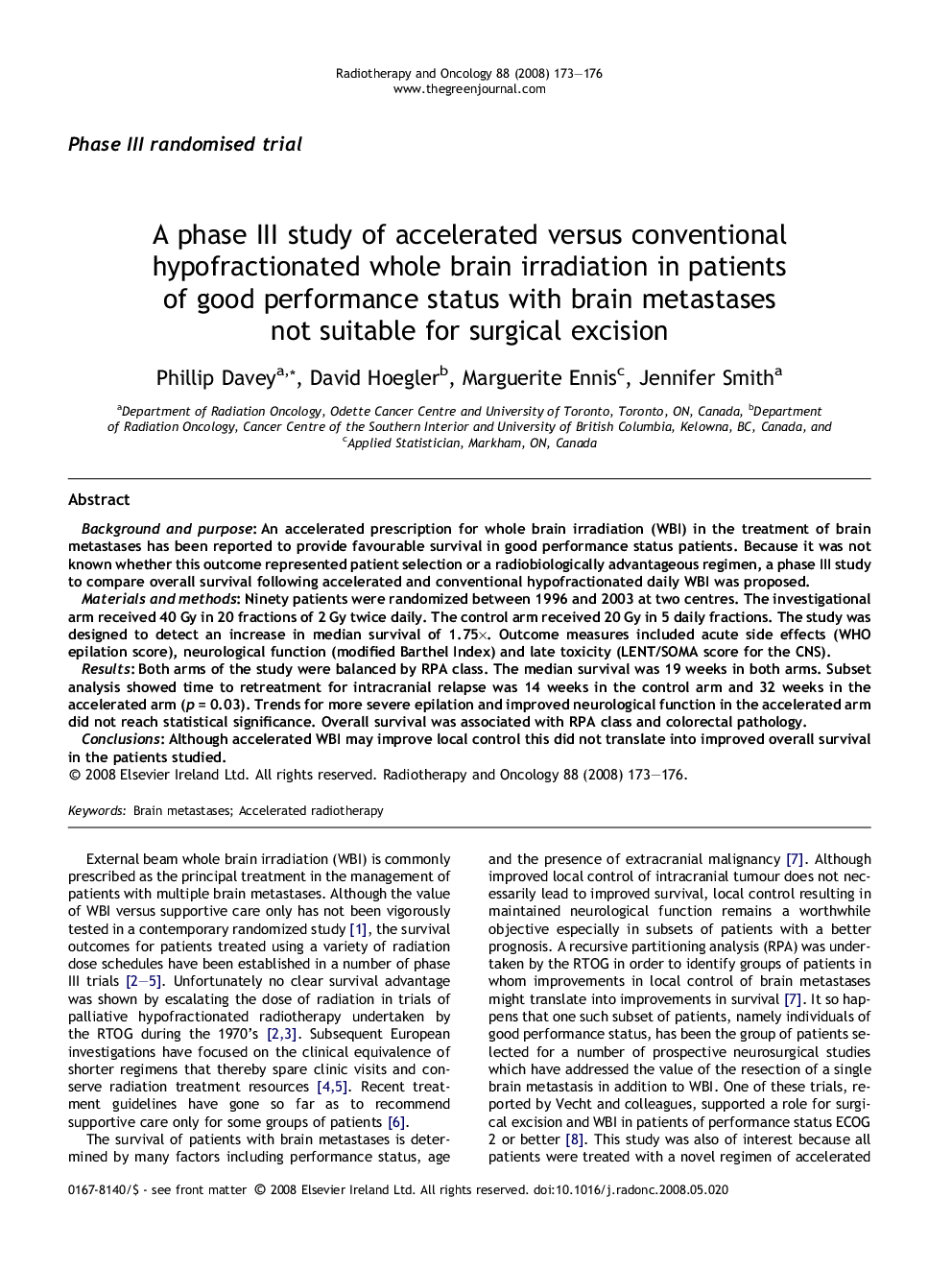| Article ID | Journal | Published Year | Pages | File Type |
|---|---|---|---|---|
| 2160190 | Radiotherapy and Oncology | 2008 | 4 Pages |
Background and purposeAn accelerated prescription for whole brain irradiation (WBI) in the treatment of brain metastases has been reported to provide favourable survival in good performance status patients. Because it was not known whether this outcome represented patient selection or a radiobiologically advantageous regimen, a phase III study to compare overall survival following accelerated and conventional hypofractionated daily WBI was proposed.Materials and methodsNinety patients were randomized between 1996 and 2003 at two centres. The investigational arm received 40 Gy in 20 fractions of 2 Gy twice daily. The control arm received 20 Gy in 5 daily fractions. The study was designed to detect an increase in median survival of 1.75×. Outcome measures included acute side effects (WHO epilation score), neurological function (modified Barthel Index) and late toxicity (LENT/SOMA score for the CNS).ResultsBoth arms of the study were balanced by RPA class. The median survival was 19 weeks in both arms. Subset analysis showed time to retreatment for intracranial relapse was 14 weeks in the control arm and 32 weeks in the accelerated arm (p = 0.03). Trends for more severe epilation and improved neurological function in the accelerated arm did not reach statistical significance. Overall survival was associated with RPA class and colorectal pathology.ConclusionsAlthough accelerated WBI may improve local control this did not translate into improved overall survival in the patients studied.
